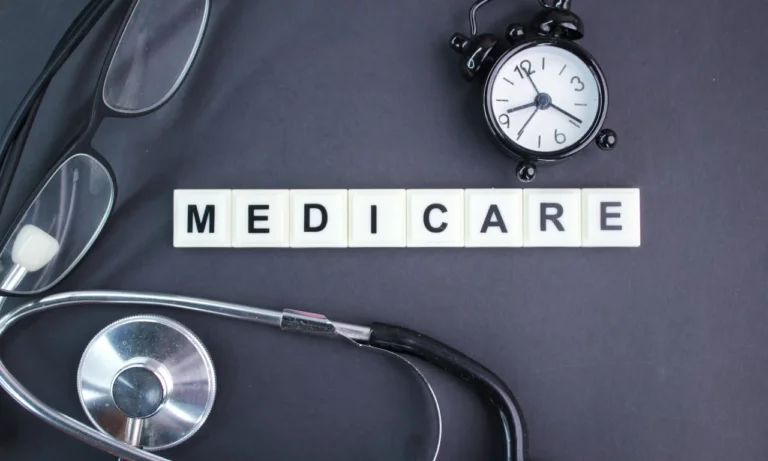Tuberculosis (TB) is a serious, contagious illness that’s still a big health concern worldwide. It’s a major cause of death, coming in at number 13 on the list. It’s the second most deadly infectious disease, just after COVID-19 and before HIV/AIDS, as per the World Health Organization. One common sign of TB is losing weight without trying, and if this goes unchecked, it can cause more health problems. So, it’s super important to know how TB can make you lose weight to better deal with the disease. In this article, we’ll talk about how TB and weight loss are connected, and also how remote patient monitoring (RPM) can help people with TB get better care.
The Link Between Tuberculosis and Weight Loss
Tuberculosis is a contagious illness caused by a germ called Mycobacterium tuberculosis. It usually targets the lungs but can harm other body parts, like the kidneys, spine, and brain. A significant sign of TB is weight loss, which can be quite severe in some cases.
How TB Affects Your Body and Can Lead to Weight Loss
1. TB’s path in the body
- TB mainly starts in your lungs but can spread through your bloodstream to other body parts.
- This causes inflammation and damage in your lungs, leading to issues like coughing, chest pain, and trouble breathing.
- Extra mucus production can clog up your airways, making breathing even harder.
2. Weight loss and TB
- TB doesn’t just affect your breathing; it messes with your body’s metabolism too.
- You might notice that you’re losing weight. This happens because of something called cytokines, which are like your body’s soldiers fighting off the TB infection.
- These cytokines can cause inflammation and make you lose your appetite, so you might not eat enough to keep your body weight stable.
3. The role of leptin
- TB also messes with a hormone called leptin. Leptin usually helps control your energy and body weight.
- But when you’re dealing with TB, all that inflammation can lower your leptin levels.
- Lower leptin means you’re less hungry, and your body burns more energy, making you lose even more weight.
So, when you’re fighting TB, it’s common to experience weight loss along with all the other symptoms. It’s important to talk to your doctor and get the right treatment to help your body recover.
How Tuberculosis Makes You Lose Weight

It’s important to understand that TB can affect your weight in different ways. Here’s what you need to know:
- Loss of appetite: When you have TB, it can mess with your appetite, making you less interested in eating. This means you might not be getting enough food and calories, which can cause you to lose weight.
- Faster metabolism: Your body’s natural defense against TB can kick in and make more white blood cells. This increase in activity can speed up your metabolism. Basically, it’s like your body is burning calories at a faster rate than usual, which can lead to weight loss.
- Low leptin levels: People with untreated TB tend to have lower levels of a hormone called leptin. Leptin helps control your weight and metabolism. When it’s too low, it can lead to a drop in your body mass index (BMI) and severe weight loss.
- Leptin blockage: The TB bacteria can do something tricky—they can stop your body from producing enough leptin. When this happens, you might lose your appetite and have a faster metabolism, causing you to burn more calories than you eat, which leads to rapid weight loss.
- Impact on treatment: Low leptin levels can also affect how well TB treatment works for you. Studies have shown that if your leptin levels are low, you might not respond as quickly to treatment and have a higher chance of the TB coming back. This is why it’s crucial to keep an eye on leptin levels and provide the right nutrition to TB patients. It can help prevent severe weight loss and improve your chances of getting better.
So, in simple terms, TB can make you lose weight by making you eat less, burning calories faster, messing with hormones, and affecting your response to treatment. Keeping an eye on leptin levels and providing good nutrition can help you fight off TB and prevent excessive weight loss.
Why Unintended Weight Loss is a Concern for Tuberculosis Patients
Unintended weight loss messes with your immune system, makes your TB treatment less effective, and puts you at risk for various complications. Here’s why it’s crucial to pay attention:
- Weakened immune system: Losing weight unintentionally weakens your body’s defenses, making it harder to fight off TB and other illnesses.
- Prolonged illness: Unintended weight loss can drag out your TB battle, making you sick for longer than necessary.
- Increased Risk of Infections: Shedding pounds without meaning to puts you at a higher risk of catching other infections on top of TB.
- TB treatment issues: Losing weight while on TB treatment can mess with how well the treatment works because your body can’t absorb the medicine properly.
What You Should Do
If you’re dealing with tuberculosis, don’t ignore unintended weight loss. Talk to your doctor about it. They can help you:
- Monitor your weight loss.
- Adjust your diet.
- Provide supplements.
- Modify your treatment plan.
By working with your healthcare provider, you can boost your chances of getting back to good health.
Tips for Managing TB-Related Weight Loss
When tuberculosis causes you to lose weight without trying, it can affect your health. Here are some simple tips for managing this weight loss and staying healthy:
- Get moving: Exercise is your friend. Try for at least 30 minutes of moderate activities like walking, biking, or swimming most days to keep a healthy weight and feel better overall.
- Eat right: Keep your weight in check and get the nutrients you need by:
- Eating lean proteins, whole grains, fruits, and veggies.
- Having small, regular meals.
- Staying hydrated.
- Picking nutrient-rich foods and cutting back on processed and fatty stuff.
- Watch your weight: Keep an eye on your body weight during and after your TB treatment. If you notice big changes, chat with your healthcare provider. They can suggest diet or exercise tweaks.
- Remote patient monitoring: RPM uses fancy tech to track your health data from afar. When it comes to managing TB-related weight loss, RPM can help monitor your weight and catch issues early, making it easier to manage.
Remember, unintentional weight loss is common with TB, but these tips can help you deal with it and keep a healthy weight throughout your TB journey.
DrKumo Remote Patient Monitoring for TB Weight Loss

DrKumo offers a tech solution to help healthcare providers keep a close eye on your health, especially if you’re a TB patient with unintended weight loss. Here’s how it can help:
Features of DrKumo RPM
- Real-time monitoring: DrKumo lets your healthcare team watch your weight and vital signs in real time, spotting any changes in your condition quickly.
- Personalized care plans: They use this data to create plans just for you, so you get the care you need.
- Access to resources: You can get advice and exercise programs from your healthcare providers to manage your weight loss. It’s all user-friendly and works on mobile devices.
- Privacy assured: Your info is kept private and secure with HIPAA compliance.
Benefits of Using DrKumo RPM
- Better treatment outcomes: By keeping an eye on your weight and vital signs, your healthcare team can adjust your treatment for better results, quicker recovery, and fewer problems.
- Patient empowerment: DrKumo helps you manage your weight loss and stay engaged in your TB treatment, making you happier with your care.
When TB causes unintended weight loss, DrKumo RPM can be a real help in keeping you healthy and on track.
Frequently Asked Questions
1. What is tuberculosis, and why does it cause weight loss?
Tuberculosis (TB) is a bacterial infection that primarily affects the lungs. It causes weight loss because it can make you lose your appetite and affect your body’s ability to absorb nutrients.
2. Why am I losing weight if I have tuberculosis?
TB can cause fever, night sweats, and a reduced appetite. Your body may also use more energy to fight the infection, which can lead to weight loss.
3. Is it normal to lose weight when I have TB, or should I be concerned?
It’s common to lose weight with TB, but it’s essential to monitor it. If you’re losing too much weight too quickly, consult your healthcare provider.
4. How much weight loss is typical with tuberculosis?
TB-related weight loss can vary, but significant weight loss, such as 10% of your body weight in a few months, should be discussed with your healthcare provider.
5. Will my weight go back to normal after treating TB?
With proper treatment and a balanced diet, you can regain the weight you lost during your TB treatment.
6. How long does it take to recover from TB-related weight loss?
The recovery period varies from person to person. It may take several months to regain lost weight. Stay committed to your treatment plan and diet.
7. Can I exercise to gain weight during TB treatment?
Light exercises can help maintain muscle mass, but intense workouts are not advisable during active TB treatment. Consult your healthcare provider for guidance on suitable activities.
Takeaways
Unintended weight loss can be a sign of serious health problems, so it’s crucial to deal with it right away. Understanding why it’s happening and using our tips can help you prevent unintentional weight loss from tuberculosis. Plus, DrKumo remote monitoring can assist you in managing your weight loss and other health issues.
Learn about DrKumo RPM solution to manage your health, especially if you experience unintended weight loss due to tuberculosis. Contact DrKumo now!
Disclaimer: Information provided is for general purposes only. It’s not a substitute for medical advice. For unintentional weight loss due to TB, consult a healthcare professional.








